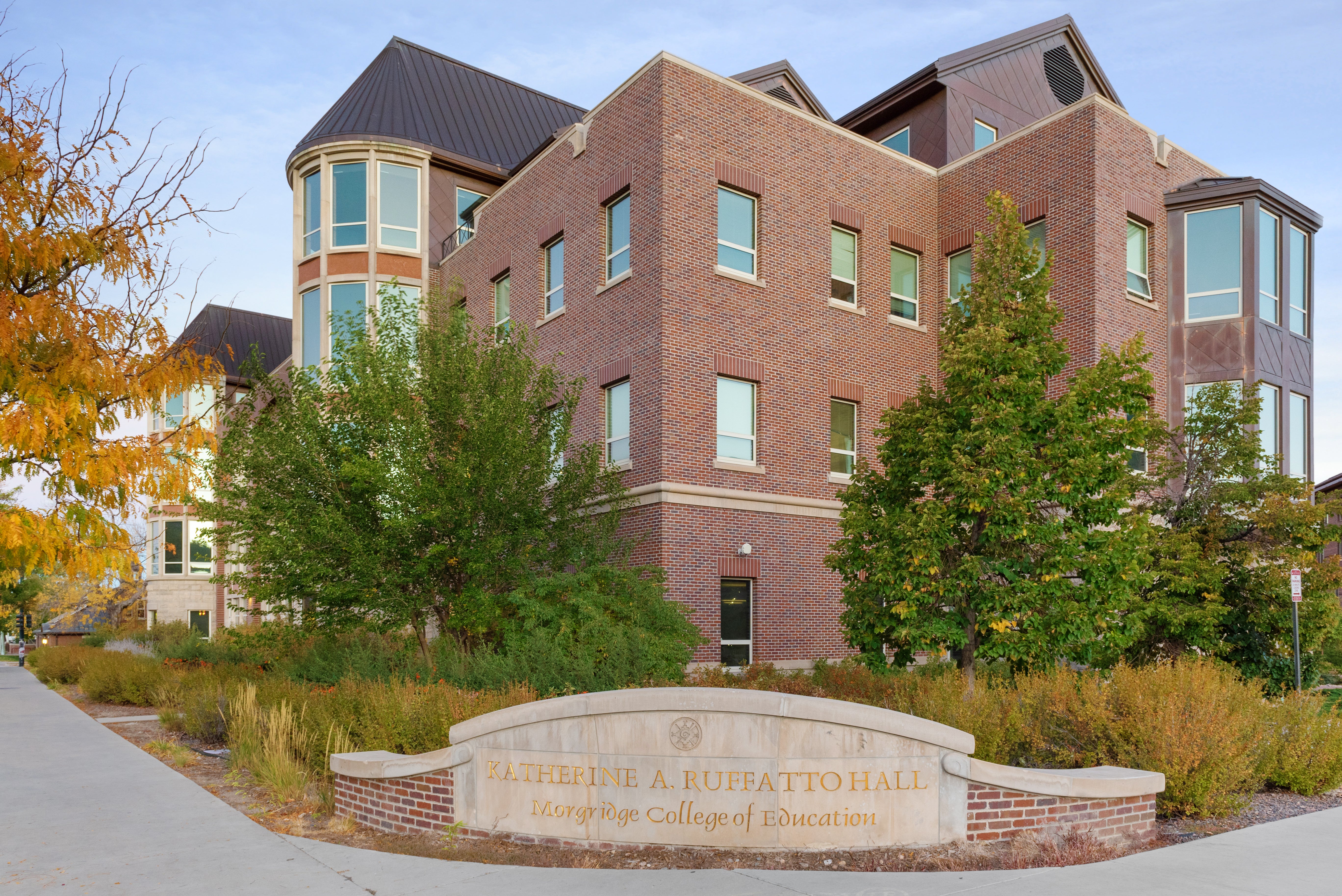
Spencer Acadia
Clinical Assistant Professor
303-871-2838 (Office)
https://www.spenceracadia.com/
Katherine A. Ruffatto Hall, 1999 East Evans Avenue Denver, CO 80208
What I do
Spencer Acadia, previously an academic librarian for 10 years, teaches research methods and various other courses in library and information science (LIS) including collection management, academic librarianship, global LIS research and practice, and management of information organizations. In addition, Spencer advises and mentors graduate students pursuing their MLIS degree, primarily in the online program. Professionally, Spencer remains active and holds leadership positions in the International Federation of Library Associations (IFLA), the leading global professional organization for LIS. In terms of scholarship, Spencer publishes in two primary areas: 1) LIS in, for, and about Arctic and Northern contexts, and 2) libraries as dysfunctional organizations and LIS as a dysfunctional profession.Specialization(s)
Research Methods and Information Science (RMIS), Library and Information Science (LIS), Arctic studies, Northern studies, Library dysfunction, International Federation of Library Associations (IFLA)
Professional Biography
Spencer Acadia is a former academic librarian and instructor of both psychology and sociology at the undergraduate and graduate levels. After leaving the academic librarianship, Spencer came to the University of Denver in 2020, during the COVID-19 pandemic.
Currently, Spencer is full-time faculty in the Research Methods and Information Science (RMIS) department, teaching courses in library and information science and research methods primarily, but not exclusively, in the online program.
Spencer has been professionally active in the International Federation of Library Associations (IFLA) since 2012, serving and gaining valuable committee leadership experience in the knowledge management and digital humanities / digital scholarship groups.
Spencer enjoys engaging in scholarship and has published articles in peer-reviewed journals, as well as books and book chapters.
Currently, Spencer is full-time faculty in the Research Methods and Information Science (RMIS) department, teaching courses in library and information science and research methods primarily, but not exclusively, in the online program.
Spencer has been professionally active in the International Federation of Library Associations (IFLA) since 2012, serving and gaining valuable committee leadership experience in the knowledge management and digital humanities / digital scholarship groups.
Spencer enjoys engaging in scholarship and has published articles in peer-reviewed journals, as well as books and book chapters.
Degree(s)
- Certificate, Digital content management, University of North Texas, 2017
- Ph.D., Sociology, University of North Texas, 2014
- MLS, Library and information science, Texas Woman's University, 2009
- MA, Psychology, University of Houston Clear Lake, 2005
- BA, Psychology, Lamar University, 2002
Professional Affiliations
- International Federation of Library Associations
Research
Spencer Acadia's scholarship in Arctic and Northern studies aims to draw attention to and advance research in the potential and realized roles of library and information science (LIS) in, for, and about the Arctic and North.
Spencer's scholarship in library dysfunction aims to draw attention to and advance research in the generalized problematic state of library workplaces and the LIS profession.
Spencer's scholarship in library dysfunction aims to draw attention to and advance research in the generalized problematic state of library workplaces and the LIS profession.
Areas of Research
Arctic Studies in LIS
Northern Studies in LIS
Library dysfunction
Digital Sociology
Featured Publications
. (1969). Library and information sciences for Arctic and Northern studies. Springer.
. (2020). Introduction: Why this book and why the Arctic?. In S. Acadia & Fjellestad, M. T. (Eds.), Library and information studies for Arctic social sciences and humanities (pp. 1-65). Routledge.
. (2020). The organizational trap-gap model: A conceptual view of library dysfunction. IFLA Journal, 6(1), 72-87.
. (2019). Libraries that learn: Keys to managing organizational knowledge. American Library Association.
. (2020). Introduction: Why this book and why the Arctic?. In S. Acadia & Fjellestad, M. T. (Eds.), Library and information studies for Arctic social sciences and humanities (pp. 1-65). Routledge.
. (2019). Conceptual and technological tools for knowledge management. In J. A. Bartlett & Acadia, S. (Eds.), Libraries that learn: Keys to managing organizational knowledge (pp. 49-65). American Library Association.
. (2019). Challenges and issues in managing organizational knowledge. In J. A. Bartlett & Acadia, S. (Eds.), Libraries that learn: Keys to managing organizational knowledge (pp. 23-48). American Library Association.
. (2016). Books be gone! Reducing a library's print collection by half to meet strategic planning initiatives and participate in a joint library resource-sharing facility. Journal of Library Administration, 56(2), 144-157.
. (2016). Knowledge translation and ethics in public and population health from a knowledge management perspective. Ethics, Medicine, and Public Health, 2(2), 302-309.
Presentations
. (2019). Success stories and challenges: News media reused in research and by the general public. 84th IFLA World Library and Information Congress. Athens, Greece: International Federation of Library Associations.
. (2017). Facilitating social sciences and humanities scholarship of the Arctic through library, archival, and information services. 9th International Conference for Arctic Social Sciences. Umeå, Sweden: International Arctic Social Sciences Association.
. (2017). Doing data together: Constructing professional connections for global data librarians. 83rd IFLA World Library and Information Congress. Wroclaw, Poland: International Federation of Library Associations.
. (2015). Knowledge managers as the modern information professional: Integrating 12 KM tasks in an embedded position. 81st IFLA World Library and Information Congress. Cape Town, South Africa: International Federation of Library Associations.
. (2015). Books be gone! Reducing a library's print collection by half to meet strategic planning initiatives and participation in the Joint Library Facility of the University of Texas and Texas A&M Systems. ACRL 2015 Conference. Portland, Oregon, USA: Association of College and Research Libraries.
. (2014). Selection, implementation, and behavioral considerations for knowledge management tool adoption: A case study of a financial services company's decision-making process. 80th IFLA World Library and Information Congress. Lyon, France: International Federation of Library Associations.


